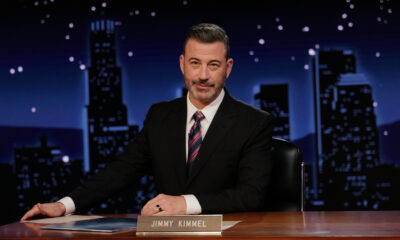Business
Households to be offered lower standing charges but energy bill savings unlikely

Read more on post.
Kevin PeacheyCost of living correspondent
Every household will be offered a low standing charge deal by the end of January, under new plans, but the cost of overall energy bills is unlikely to fall.
Regulator Ofgem has announced all suppliers in England, Scotland and Wales will offer at least one tariff in which standing charges are lower but customers then pay more for each unit of energy used.
The move comes after those who use relatively little gas and electricity argued they have no control over the fixed daily charges, which cover the cost of connecting to a gas and electricity supply.
However, consumer champion Martin Lewis said the policy was “disappointing” and charities warned it did not address the issue of high bills.
Standing charges pay for the cost of transporting energy to people’s homes, security of the supply, investment in the energy network and some bill support schemes.
From 1 October, the charges will typically cost 53.68p a day for electricity and 34.03p a day for gas for those paying by direct debit.
However, these fees vary depending on where billpayers live. In North Wales and Merseyside, the cost will be nearly 70p a day for electricity, for example.
Ofgem has been considering how to change the bill payments system after widespread concern and backlash from households.
When bills were at a peak in the winter of 2022, many people slashed their energy use but still had to pay the standing charge element of the bill, regardless of how much gas or electricity was used.
While Ofgem’s plans will enable customers to take up a deal where standing charges are lower, the savings are likely to be limited due to such tariffs having higher rates for energy usage.
“Plans to offer a lower standing charge may provide more choice to consumers, but won’t bring down people’s bills,” said Gillian Cooper, director of energy at Citizens Advice.
Ofgem said costs covered by standing charges must be paid somehow, and so has said it could only move them to another part of the bill.
The announcement of the plans comes as energy bills for millions of people on tariffs which vary with Ofgem’s price cap are rising by 2% in October.
Rising standing charges are part of that, with the fees typically rising by 4% for electricity and 14% for gas.
‘More choice’
“We have carefully considered how we can offer more choice on how they pay these fixed costs, however we have taken care to ensure we don’t make some customers worse off,” said Tim Jarvis, from Ofgem.
The regulator’s latest proposals are less radical than previously considered, and it would also require tariffs to have a minimum usage level.
Under its plans, now subject to consultation:
- All suppliers in England, Scotland and Wales must offer a low standing charge tariff to customers. Some providers already offer this as an option, but it would be universal
- All billpayers will have the choice to move to such a tariff by the end of January
- The new tariffs will be available to customers irrespective of how they pay their bill, such as by direct debit or quarterly on demand
“The costs covered by the standing charge ultimately must be paid. We cannot remove these charges, we can only move costs around,” added Mr Jarvis.
“These changes would give households the choice they have asked for, but it’s important that everyone carefully considers what’s right for them as these tariffs are unlikely to reduce bills on their own.”
People who cut their energy use should see a bigger reduction in bills than would be the case without these changes, he said.
Suppliers will be able to decide whether to also offer zero standing charge tariffs, with much higher unit rates.
Rising cost
Many charities say that rather than shifting the fee onto another part of the bill, more should be done to help those struggling to pay.
“With October’s price hike just around the corner, lower standing charge tariffs will not help the millions of households bracing themselves for yet another winter of unaffordable energy bills,” said Ms Cooper, of Citizens Advice.
Campaigners are also concerned that more tariffs could create greater confusion.
Mr Lewis, the founder of Money Saving Expert, said the “disappointing” plan seemed to be “significantly watered down” from earlier proposals.
“I get more complaints about standing charges than anything else in energy bills,” he said. “I worry Ofgem has picked an easy route to appease suppliers’ concerns, that doesn’t help the most vulnerable.
“I suspect if it goes ahead like this, not enough people will switch and they’ll say ‘it wasn’t worth it.'”
Dhara Vyas, from Energy UK, which represents suppliers, said it was hard to see how the move warranted the potential cost and disruption.
“Ofgem admits [this] will only be temporary and merely move costs around on the bill, so delivering a limited benefit to customers,” she said.
The plans will now go to consultation before a final decision is made.
Business
Government considers financial support for JLR suppliers

Read more on post.
Simon JackBusiness editor and
Chris MasonPolitical editor
The government is looking at ways to financially support the companies in Jaguar Land Rover’s (JLR) supply chain.
JLR halted car production at the end of August after a cyber attack forced it to shut down its IT networks. Its factories remain suspended until next month at the earliest.
Fears are growing that some suppliers, in particular the smaller firms who solely rely on JLR’s business, could go bust without support.
One idea being explored is the government buying the component parts the suppliers build, to keep them in business until JLR’s production lines are up and running again.
Unions had called for a Covid-style furlough scheme, but ministers have ruled this out given its likely cost, sources have told the BBC.
Another option being considered is providing government-backed loans to suppliers, though this is understood to be out unpopular with suppliers.
The purchase and stockpiling of car parts by the government is also an option on the table, but this would present considerable logistical challenges.
JLR’s manufacturing process relies on the right part arriving at the right place, at the right time.
However, industry experts agree doing nothing risks firms in the supply chain, which employs tens of thousands of workers, facing bankruptcy.
The Business and Trade Select Committee is due to meet on Thursday afternoon to hear testimonies from businesses in JLR’s supply chain because of deep concern for some of these businesses to remain viable.
This evidence will be shared with the government afterwards.
Senior government figures are concerned about a pattern of cyber attacks on UK institutions and businesses, such as the British Library, Marks & Spencer, and the Co-op.
A group calling itself Scattered Lapsus$ Hunters has claimed responsibility for the hack on JLR, Marks & Spencer, and Co-op.
An investigation is under way into the cyber attack on JLR, which is believed to be costing the company at least £50m a week in lost production.
JLR would normally expect to build more than 1,000 cars a day at its three factories in Solihull and Wolverhampton in West Midlands and Halewood in Merseyside.
However, workers were sent home following the hack – which first came to light on 1 September – with no firm return date.
About 30,000 people are directly employed at those plants with a further 100,000 working in the firm’s supply chain.
On Tuesday, the business secretary and industry minister visited the West Midlands for the first time since the incident to meet JLR and the firms in its supply chain.
The Department for Business and Trade said ministers have discussed “the impacts of the cyber incident and how JLR can work towards restarting production”.
Additional reporting by Pritti Mistry

Business
It’s got Peaky Blinders swagger, says House of Guinness writer
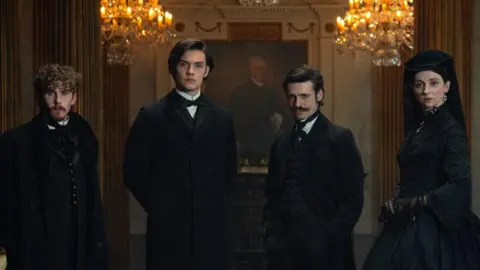
Read full article on post.
Yasmin RufoBBC News
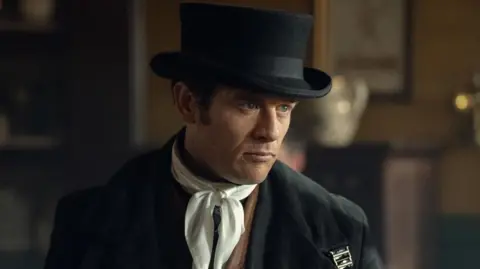 Netflix
NetflixTaking family power struggles and turning them into global television sensations is becoming something of a habit for screenwriter Steven Knight.
With Peaky Blinders, he took a Birmingham street gang and made them a cultural force. Now, Knight is betting on another dynasty, one rooted in brewing, wealth and legacy.
House of Guinness, which launches on Netflix on Thursday, tells the story of Ireland’s most famous family name at the moment of crisis – Sir Benjamin Guinness has died and his four children, each concealing dark secrets, are left to steer the brewery’s fate.
Knight says when he looked into the real-life Guinness family, “it was immediate that I realised this is an incredible drama and story”.
He was struck by “the characters, events and how it all intermeshed with history and what was going on at the time”.
While the story is based on real events, it is a drama first and foremost. Fact and fiction have been blended together, but Knight says he doesn’t see those two things as mutually exclusive, as “it’s often the true events that are the least believable”.
“Some of the historical events are so amazing and unexpected you wouldn’t make them up yourself,” he tells the BBC.
One of the imagined figures in the Netflix drama is Sean Rafferty, the brewery’s foreman, played by Happy Valley star James Norton, whose fate becomes entangled with the dynasty’s power struggles.
Norton says his character is an “amalgamation of lots of different people” who existed at the time, adding that he found researching into the history of Guinness “remarkable and fascinating”.
The 40-year-old explains that as soon as he read the script he was ready to sign up to the show.
“I read the first four scripts all at once and it was a no-brainer,” he says. “Almost every scene starts with Rafferty’s silhouette in a window in a cloud of smoke and I thought ‘sign me up, that’s really cool’.”
Most of the actors in the series were Irish, something Norton says added a level of pressure when it came to perfecting the accent and admits he was “so scared on the first day”.
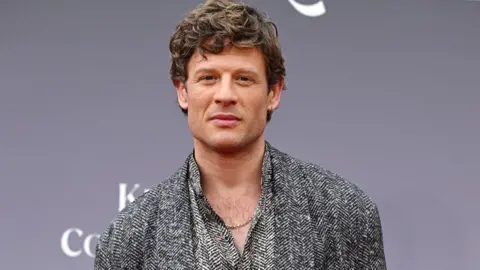 Getty Images
Getty Images“You work really hard at the beginning and once you crack the first big dialogue scene and have spoken the first lines there’s no going back,” he explains.
The first scene Norton filmed was one where he punches three disloyal workers at the Guinness factory. He says he used the line ‘I see your three names written in black ash up there’ to get back into the accent for subsequent scenes.
‘Once in a lifetime experience’
Starring alongside Norton is Irish actress Danielle Galligan who plays Lady Olivia, an aristocrat who marries into the Guinness family. After the British monarch, she was the richest woman in Britain and Ireland at the time.
The actress says she loved researching her character and understanding what she was really like.
“She’s such a firecracker in the series and then I actually found out she was also a very solitary and silent woman who painted lots of watercolours,” Galligan explains.
“She was a woman who had everything and yet was still looking for something. Learning about her gave me a sense of her lack of fulfilment and added another layer to her.”
Galligan says it was very special to tell an Irish story and “to do it on a global scale is a once-in-a-lifetime kind of experience”.
Joining Galligan is Niamh McCormack, whose character is part of the rebellious Fenian Brotherhood, and Jack Gleeson, who is best known for playing Joffrey Baratheon in Game of Thrones.
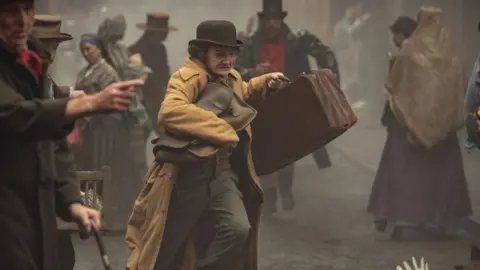 Netflix
NetflixMcCormack and Gleeson say they are proud to be part of a series that puts Ireland on the map, but admit that with pride comes pressure over how it will be received by audiences at home.
“It’s always a factor but I tried not to think about it too much,” Gleeson says. “You want things to be represented well but also hopefully people know not to take it too seriously as a historical document.”
Knight was less worried about what audiences would think, admitting: “I should care but I don’t – if you worry what people are going to think you can’t really do anything as you’d be trying to please too many different people.”
House of Guinness has already been compared to the likes of Succession, The Crown and Peaky Blinders but Knight is indifferent about how people compare it.
“People say every project is a cross between stuff and I don’t take that too seriously, I’m confident that this is its own thing,” he says.
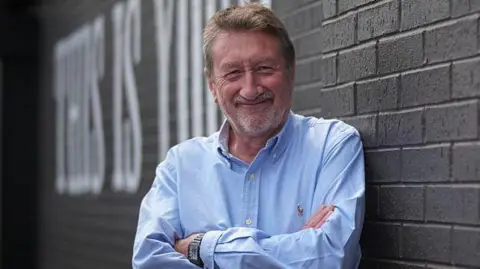 Getty Images
Getty ImagesFor Norton, who is also currently starring in BBC’s historical drama King & Conqueror, to be compared to such successful shows is a positive.
“To be in the same breath as those dynasty shows is great and I’m happy if we’re included among that group,” he says. Gleeson agrees and explains that this drama “takes the best bits of the rest and adds its own magic and essence”.
Knight does admit that there are many similarities between House of Guinness and Peaky Blinders and the shows have influenced each other as the 66-year-old has recently finished working on the Peaky Blinder film, The Immortal Man, which will see Cillian Murphy reprise his role as Birmingham gangster Tommy Shelby.
“Sometimes parallels are pointed out that I don’t even have a clue about,” he laughs. “But there are a lot of similarities – the family, it has the same energy, humour and swagger.”
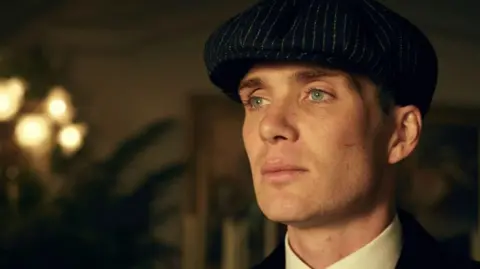 BBC Studios
BBC StudiosKnight is also involved in writing the new James Bond film, which he previously told the BBC had always been on his bucket list.
The movie will be directed by Dune’s Denis Villeneuve and is currently in development and being overseen by Amazon MGM Studios after long-serving masterminds Barbara Broccoli and Michael G Wilson stood down in February.
When asked a question about Bond, Knight smiles and says he’s not able to talk about it but does admit that after the success of several of his shows, he feels a greater freedom to write more creatively.
And with House of Guinness, he hopes to have used that freedom to make this latest dynasty saga a success in its own right.
Breaking News
It’s got Peaky Blinders swagger, says House of Guinness writer

Read more on post.
Yasmin RufoBBC News
 Netflix
NetflixTaking family power struggles and turning them into global television sensations is becoming something of a habit for screenwriter Steven Knight.
With Peaky Blinders, he took a Birmingham street gang and made them a cultural force. Now, Knight is betting on another dynasty, one rooted in brewing, wealth and legacy.
House of Guinness, which launches on Netflix on Thursday, tells the story of Ireland’s most famous family name at the moment of crisis – Sir Benjamin Guinness has died and his four children, each concealing dark secrets, are left to steer the brewery’s fate.
Knight says when he looked into the real-life Guinness family, “it was immediate that I realised this is an incredible drama and story”.
He was struck by “the characters, events and how it all intermeshed with history and what was going on at the time”.
While the story is based on real events, it is a drama first and foremost. Fact and fiction have been blended together, but Knight says he doesn’t see those two things as mutually exclusive, as “it’s often the true events that are the least believable”.
“Some of the historical events are so amazing and unexpected you wouldn’t make them up yourself,” he tells the BBC.
One of the imagined figures in the Netflix drama is Sean Rafferty, the brewery’s foreman, played by Happy Valley star James Norton, whose fate becomes entangled with the dynasty’s power struggles.
Norton says his character is an “amalgamation of lots of different people” who existed at the time, adding that he found researching into the history of Guinness “remarkable and fascinating”.
The 40-year-old explains that as soon as he read the script he was ready to sign up to the show.
“I read the first four scripts all at once and it was a no-brainer,” he says. “Almost every scene starts with Rafferty’s silhouette in a window in a cloud of smoke and I thought ‘sign me up, that’s really cool’.”
Most of the actors in the series were Irish, something Norton says added a level of pressure when it came to perfecting the accent and admits he was “so scared on the first day”.
 Getty Images
Getty Images“You work really hard at the beginning and once you crack the first big dialogue scene and have spoken the first lines there’s no going back,” he explains.
The first scene Norton filmed was one where he punches three disloyal workers at the Guinness factory. He says he used the line ‘I see your three names written in black ash up there’ to get back into the accent for subsequent scenes.
‘Once in a lifetime experience’
Starring alongside Norton is Irish actress Danielle Galligan who plays Lady Olivia, an aristocrat who marries into the Guinness family. After the British monarch, she was the richest woman in Britain and Ireland at the time.
The actress says she loved researching her character and understanding what she was really like.
“She’s such a firecracker in the series and then I actually found out she was also a very solitary and silent woman who painted lots of watercolours,” Galligan explains.
“She was a woman who had everything and yet was still looking for something. Learning about her gave me a sense of her lack of fulfilment and added another layer to her.”
Galligan says it was very special to tell an Irish story and “to do it on a global scale is a once-in-a-lifetime kind of experience”.
Joining Galligan is Niamh McCormack, whose character is part of the rebellious Fenian Brotherhood, and Jack Gleeson, who is best known for playing Joffrey Baratheon in Game of Thrones.
 Netflix
NetflixMcCormack and Gleeson say they are proud to be part of a series that puts Ireland on the map, but admit that with pride comes pressure over how it will be received by audiences at home.
“It’s always a factor but I tried not to think about it too much,” Gleeson says. “You want things to be represented well but also hopefully people know not to take it too seriously as a historical document.”
Knight was less worried about what audiences would think, admitting: “I should care but I don’t – if you worry what people are going to think you can’t really do anything as you’d be trying to please too many different people.”
House of Guinness has already been compared to the likes of Succession, The Crown and Peaky Blinders but Knight is indifferent about how people compare it.
“People say every project is a cross between stuff and I don’t take that too seriously, I’m confident that this is its own thing,” he says.
 Getty Images
Getty ImagesFor Norton, who is also currently starring in BBC’s historical drama King & Conqueror, to be compared to such successful shows is a positive.
“To be in the same breath as those dynasty shows is great and I’m happy if we’re included among that group,” he says. Gleeson agrees and explains that this drama “takes the best bits of the rest and adds its own magic and essence”.
Knight does admit that there are many similarities between House of Guinness and Peaky Blinders and the shows have influenced each other as the 66-year-old has recently finished working on the Peaky Blinder film, The Immortal Man, which will see Cillian Murphy reprise his role as Birmingham gangster Tommy Shelby.
“Sometimes parallels are pointed out that I don’t even have a clue about,” he laughs. “But there are a lot of similarities – the family, it has the same energy, humour and swagger.”
 BBC Studios
BBC StudiosKnight is also involved in writing the new James Bond film, which he previously told the BBC had always been on his bucket list.
The movie will be directed by Dune’s Denis Villeneuve and is currently in development and being overseen by Amazon MGM Studios after long-serving masterminds Barbara Broccoli and Michael G Wilson stood down in February.
When asked a question about Bond, Knight smiles and says he’s not able to talk about it but does admit that after the success of several of his shows, he feels a greater freedom to write more creatively.
And with House of Guinness, he hopes to have used that freedom to make this latest dynasty saga a success in its own right.
-
Culture2 days ago
Taylor Swift’s new cinema outing generates more than €12million in just 24 hours
-
Politics2 days ago
European Parliament snubs Orbán with vote to shield Italian MEP from Hungarian arrest
-
Culture1 day ago
Milan Fashion Week 2025: Unmissable shows and Giorgio Armani in mind
-
Culture2 days ago
Marvel stars Mark Ruffalo and Pedro Pascal stand up for Jimmy Kimmel as Disney boycott intensifies
-
Opinion2 days ago
AI Is Pointless If It Doesn’t Boost Productivity
-
Business14 hours ago
Households to be offered energy bill changes, but unlikely to lead to savings
-
Culture2 days ago
From Koniaków to Paris: how traditional Polish crocheting is captivating high fashion
-
Culture1 day ago
Traitors Ireland finale: A tense and thrilling conclusion to a spectacular first season



